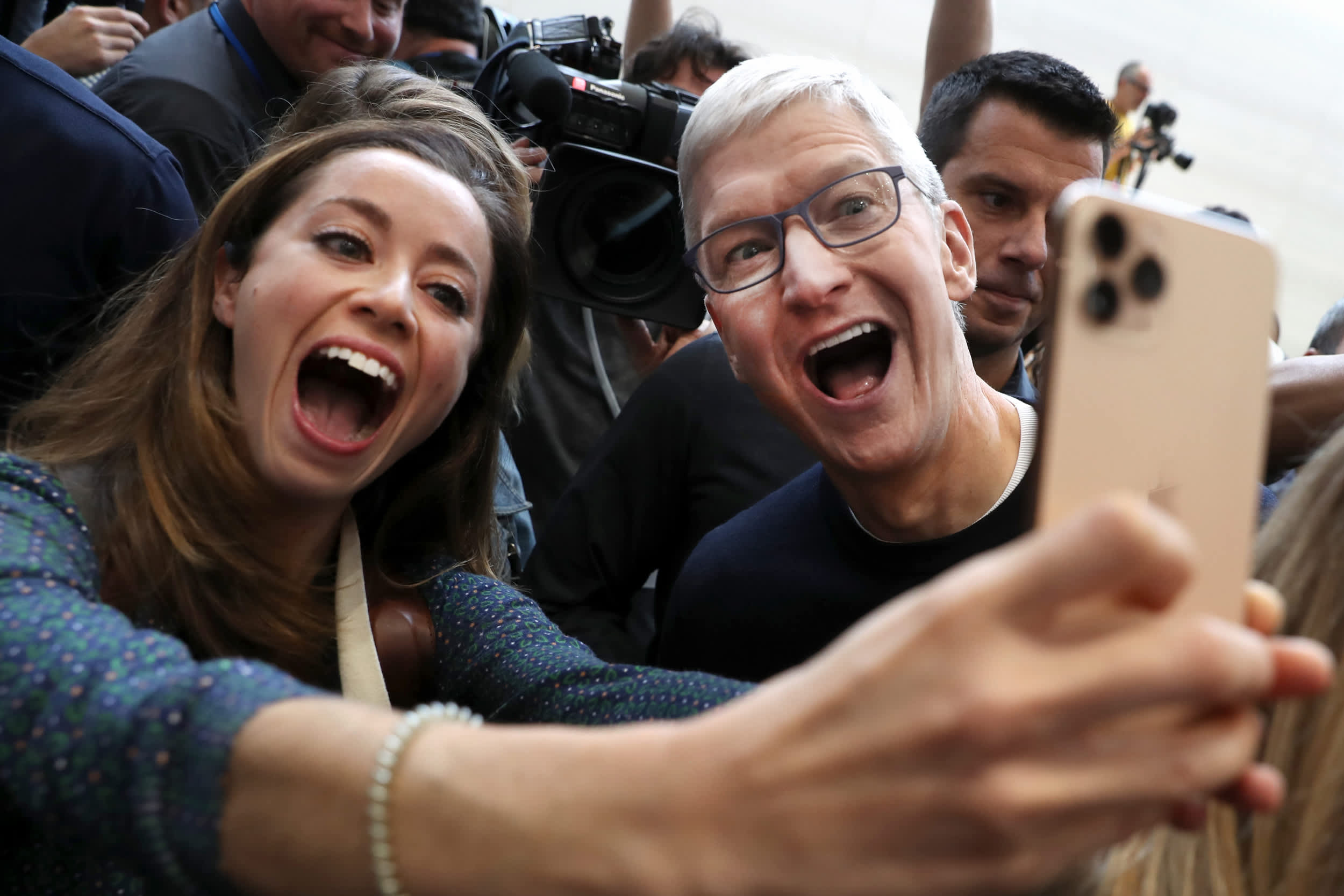Apple will hold its first product launch event of the year on Tuesday.
On deck: New iPads Pro are expected to be the primary new hardware products Apple unveils. While Apple’s iPad business showed lackluster growth in the mid-2010s, it has seen a boom over the last year as consumers turned to tablets as they worked and played from home during the pandemic.
But beyond the new gadgets, Apple is facing a decade of increased competition and courtroom battles on numerous fronts from the likes of Facebook, Epic Games, Spotify and lawmakers and regulators around the world. It may feel like just another iPad event, but there’s a lot of tension bubbling under the surface, much of which could threaten Apple’s next wave of growth as it expands into more digital services and new forms of computing technology.
Here’s a quick look at where things stand ahead of the Apple event on Tuesday:
Apple vs. Facebook
Facebook has been waging an all-out PR war against Apple over an impending change to the iPhone software that will give users the option to block apps from tracking them for targeted ads. Facebook has said the move will damage small businesses that rely on advertising to provide free digital services and software. Apple has said the change will give iPhone owners a better understanding of how apps track them and give customers the option to block that tracking.
But the bitterness between the two companies goes much deeper than that.
Both companies are working on technology they believe will usher in the next wave of computing after the smartphone, thanks to computerized glasses that utilize augmented reality. Facebook is expected to release its first pair of AR glasses as soon as this year. Apple could launch its first headset in 2022. If the platform takes off, you’ll have both Facebook and Apple duking it out to dominate AR, much like Apple battled Microsoft in the PC era and Google and Samsung (Android) in the current smartphone era.
This fight is far from over. In fact, it’s just beginning.
Apple vs. Epic Games and other large app developers
On May 3, Apple and Epic Games, maker of the popular game Fortnite, head to trial in their dispute over how Apple manages payments from iOS apps. Last fall, Epic Games purposefully changed the iOS version of Fortnite to allow users to pay Epic directly, circumventing Apple’s App Store rules. Apple ultimately removed Fortnite from the App Store, and Epic had a lawsuit ready to go.
Epic’s complaint against Apple echoes what we’ve heard from several iOS app makers over the last decade: Apple generally takes a 30% cut of digital transactions within apps and sales of paid apps themselves. Developers in Epic’s camp say the so-called “Apple tax” gives Apple too much leverage since it only allows users to download software from its own store. Apple does not allow alternative app stores like Google does on Android.
Large app makers like Spotify and dating company Match Group support Epic’s lawsuit. Many of these developers also formed a group called the Coalition for App Fairness, which has recently pushed state legislatures in Arizona and North Dakota to pass laws reining in Apple’s control of the App Store. If Apple loses the court battle or is forced to make concessions to Epic and other app developers, it could slow down growth in Apple’s App Store revenue. (The App Store generated about $64 billion in gross sales in 2020, up from about $50 billion in 2019.)
Apple has said it collects the fees in part to maintain the safety and security of the App Store so its customers can feel confident in the software they download. The company recently changed its fee structure so that it will only take a 15% cut from apps that generate less than $1 million in a year.
Apple vs. lawmakers
Apple’s control over the App Store was also the key focus of a congressional antitrust report last year that found Apple uses its control “to create and enforce barriers to competition and discriminate against and exclude rivals while preferencing its own offerings.” Apple denied the findings of the report and said its fees are in line with other digital software stores.
In addition to the legislation in Arizona and North Dakota, regulators in the U.S. are reportedly probing Apple for a formal antitrust complaint.
Apple’s China vulnerability
Apple’s dependence on China is a vulnerability rivals could exploit. Most of Apple’s products, including the iPhone, are assembled in China before they’re shipped to customers around the world.
While Apple has a small manufacturing presence in the U.S., most of it happens in China. Apple’s reliance on supply chains and assembly in the country is something rivals might point to amid rising geopolitical tensions between the U.S. and China.
And it’s already happening.
Earlier this month, Peter Thiel, a billionaire tech investor and Facebook board member, said Apple is less likely to confront China because of its deep ties in the country. (He also had similar criticism about Google’s efforts in China.)
″Apple is probably the one that’s structurally a real problem, because the whole iPhone supply chain gets made from China,” Thiel said. “Apple is one that has real synergies with China.”
